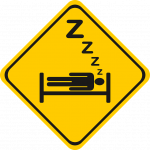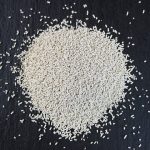Mouth breathing is a common problem that can lead to a number of physical and mental health issues. It can also cause dry mouth, bad breath, and even snoring. Thankfully, there are several ways to stop mouth breathing naturally.
Mouth breathing can occur for a variety of reasons ranging from allergies to sinus infections. It’s important to identify the underlying cause(s) before attempting any treatments. Once you understand why you’re mouth breathing, it will be easier to find out how to stop it. With the right strategy, you can reduce or even eliminate your mouth breathing problems naturally.
Identifying The Cause Of Mouth Breathing
 Mouth breathing is a common issue that can have many underlying causes. It is important to identify the cause of mouth breathing in order to effectively treat it. The most common causes are allergies, enlarged tonsils, deviated septum, or nasal obstruction due to a cold or sinus infection. Allergies, especially seasonal allergies, can cause people to breathe through their mouths as a result of nasal congestion. Enlarged tonsils can also block the airways and force people to breathe through their mouths. Deviated septum or nasal obstruction due to colds and sinus infections can also obstruct airflow, causing people to resort to mouth breathing.
Mouth breathing is a common issue that can have many underlying causes. It is important to identify the cause of mouth breathing in order to effectively treat it. The most common causes are allergies, enlarged tonsils, deviated septum, or nasal obstruction due to a cold or sinus infection. Allergies, especially seasonal allergies, can cause people to breathe through their mouths as a result of nasal congestion. Enlarged tonsils can also block the airways and force people to breathe through their mouths. Deviated septum or nasal obstruction due to colds and sinus infections can also obstruct airflow, causing people to resort to mouth breathing.
It is important for individuals who are experiencing prolonged mouth breathing to seek medical advice from an ear, nose and throat specialist (ENT) in order to identify and treat the underlying cause properly. Treatment options may include medication such as decongestants or antihistamines for allergies, or surgery for deviated septum or enlarged tonsils. Once the underlying cause has been treated, it should help alleviate the symptoms of mouth breathing.
Practicing Good Posture
Good posture is an important part of preventing mouth breathing. This means sitting or standing up straight, with your shoulders back and your head held high. Your chin should be parallel to the ground and your neck should be elongated. When you’re lying down, make sure that your neck is supported by a thin pillow, which can help keep your airways open.
You can also practice deep breathing exercises while sitting or standing tall. Inhale slowly through your nose and exhale out of your mouth in a relaxed manner. To ensure that you’re not mouth-breathing during these exercises, place one hand on the chest and another on the stomach. Make sure that the hand on the stomach rises higher than the one on the chest when inhaling. Practicing these breathing exercises regularly will help strengthen the muscles in your upper airways, therefore reducing mouth-breathing occurrences over time.
By incorporating good posture and deep breathing into your daily routine, you can significantly reduce mouth-breathing naturally over time. As you begin to practice these habits more often, you will find yourself feeling more alert and having better control over how you breathe throughout the day.
Using Essential Oils
Essential oils can also be used as an effective way to stop mouth breathing. Diffusing essential oils like eucalyptus, peppermint, and lavender, can help open up airways in the nose and throat, making it easier to breathe through the nose. In addition to diffusing the oils, they can also be applied topically. For example, a few drops of eucalyptus oil mixed with a carrier oil like coconut oil can be massaged around the neck and chest area to relax the muscles that may be constricting your airways. This helps soothe inflammation and promotes better breathing through the nose. Furthermore, these same essential oils can also be added to a steam inhalation or humidifier for additional relief. Taking these steps consistently should help reduce mouth breathing over time.
Drinking Plenty Of Water
Drinking plenty of water is an important step in helping to stop mouth breathing. Staying hydrated by drinking enough fluids throughout the day helps keep the mouth and throat moist, which can help reduce the amount of mouth breathing that occurs. Additionally, it can help loosen up any mucus build-up in the nose or throat that could be blocking air flow. Drinking more water also helps regulate body temperature, which is important because our bodies tend to overheat when we breathe through our mouths rather than our noses. Ensuring you get enough fluids each day can make a big difference in how often you find yourself unintentionally mouth breathing.
Making sure to breathe through your nose as much as possible is key to reducing mouth breathing. When exercising or engaging in activities that require heavier breathing, try using your diaphragm muscle and taking deeper breaths instead of letting your breath speed up and come out through your mouth. Practicing good posture also encourages proper nasal breathing since slouching can make it harder for oxygen to enter the lungs properly. Taking regular breaks throughout the day and regularly doing some form of relaxation exercises such as deep breaths or meditation can help reduce stress levels, which can lead to fewer episodes of unintentional mouth breathing.
Trying Breathing Exercises
Staying hydrated is an important part of any healthy lifestyle and it can also help reduce mouth breathing. Now, it’s time to look at other ways to naturally stop or reduce mouth breathing.
Breathing exercises are a great way to help retrain the body to breathe in through the nose rather than through the mouth. There are many different breathing exercises that can be done, such as diaphragmatic breathing, belly breath, and alternate nostril breathing. Practicing these exercises regularly can help strengthen the muscles used for nasal inhalation and increase one’s overall lung capacity, which could lead to reduced mouth breathing over time. It is important to note that it may take some time for results to be seen from these exercises alone.
What Is The Best Way To Treat Severe Mouth Breathing?
Severe mouth breathing can be treated in a variety of ways, depending on the individual’s circumstances. Generally speaking, the best way to treat severe mouth breathing is to begin with making lifestyle changes, such as avoiding alcohol and smoking, which can worsen symptoms. Additionally, controlling allergies by avoiding dust and other triggers can help reduce inflammation of the airways. If lifestyle changes are not enough to alleviate symptoms, more serious treatments such as nasal surgery or speech therapy may need to be considered.
Is Mouth Breathing Caused By An Underlying Medical Condition?
Mouth breathing can be caused by an underlying medical condition. This includes allergies, nasal congestion, and sleep apnea. It is important to speak with a doctor if you are experiencing symptoms of mouth breathing so that they can diagnose the cause and recommend a treatment plan. In some cases, treating the underlying condition can help to reduce or eliminate the mouth breathing entirely.
Are There Any Side Effects To Using Essential Oils?
Essential oils can be used to help stop mouth breathing naturally, but it is important to understand that there may be some side effects. Some people may experience skin irritation or sensitivity when using essential oils, and others may experience respiratory problems such as headaches or dizziness. It’s important to consult a doctor before using essential oils, as they can interact with certain medications and cause serious health issues.
Is It Possible To Stop Mouth Breathing Completely?
It is possible to stop mouth breathing completely, but it will take time and commitment. The key is to learn how to breathe through your nose instead of your mouth. This can be done by strengthening the muscles in the throat that control air flow, practicing good posture and deep breathing techniques, and avoiding triggers such as sinus congestion or allergies. With regular practice and a few lifestyle changes, you can learn to breathe only through your nose.
Is There An Age Limit On Trying Breathing Exercises To Stop Mouth Breathing?
Breathing exercises can be used to help stop mouth breathing, but it is important to keep in mind that the effectiveness of these exercises may vary depending on the age of the individual. Generally speaking, younger individuals are more likely to find success with breathing exercises than adults; however, adults can still gain benefit from trying them as well. It is important to note that while there is not an explicit age limit on using breathing exercises to stop mouth breathing, those over the age of 40 may not see as much success with them due to physiological changes that occur with aging.
Essential oils can help with some of the symptoms of mouth breathing, but there are no guarantees that they will work for everyone. It is possible to stop mouth breathing completely, but this requires dedication and commitment to a regular exercise program. Depending on your age, you may need to adjust the exercises slightly in order to get the most benefit from them. All in all, by following a few simple tips and using natural methods like essential oils and breathing exercises, you can reduce or stop mouth breathing naturally. It just takes some effort and consistency on your part.









